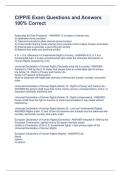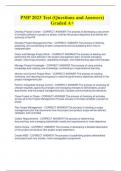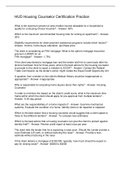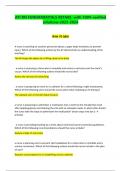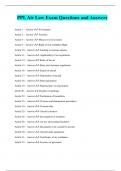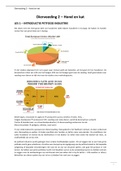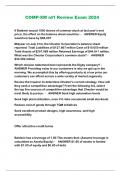Exam (elaborations)
CIPP/E Exam Questions and Answers 100% Correct
- Course
- Institution
CIPP/E Exam Questions and Answers 100% CorrectCIPP/E Exam Questions and Answers 100% CorrectCIPP/E Exam Questions and Answers 100% CorrectCIPP/E Exam Questions and Answers 100% CorrectCIPP/E Exam Questions and Answers 100% Correct Rationales for Data Protection - ANSWER-1) Increase in internet use...
[Show more]
